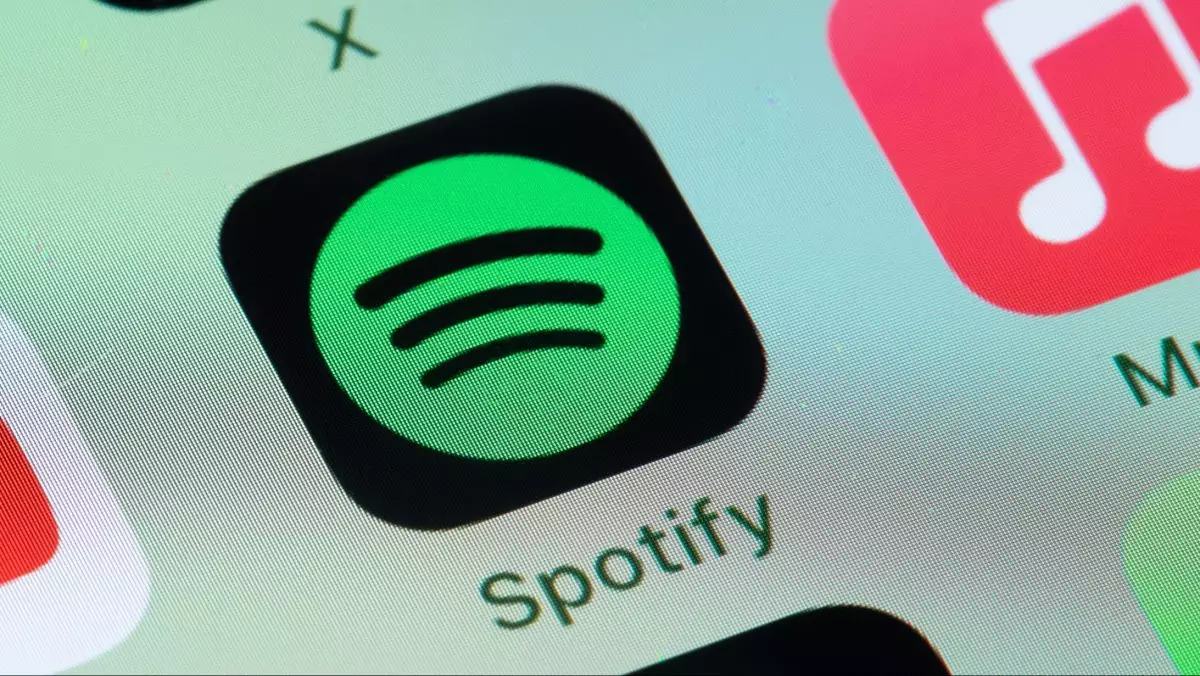In a remarkable milestone for digital commerce, Spotify has successfully secured Apple’s approval for a significant update to its app, which will now provide users access to transparent pricing information and external payment links. This pivotal development comes only days after a U.S. judge ruled that Apple must cease enforcing commissions on purchases made within iPhone apps. Not just a mere update, this change signals a shift in the balance of power within the app ecosystem, favoring consumers, creators, and the broader tech landscape.
A Bigger Picture: Consumer Empowerment
Spotify’s spokesperson Jeanna Moran described this breakthrough as a “victory for consumers, artists, creators, and authors.” This statement not only reflects Spotify’s commitment to transparency but also underscores a newfound potential for consumer empowerment. For years, customers were ensnared in a convoluted web of hidden charges and opaque pricing models dictated by Apple’s rigid App Store policies. Now, with the latest app version 9.0.40, Spotify users can access straightforward subscription information directly within the app, establishing a sense of fairness and clarity that has been sorely lacking.
The implications of this update stretch far beyond just Spotify. It sets a precedent for other apps that have also been stifled by similar arbitrary charges and restrictions. As competing developers can now showcase their products and prices more openly, the foundation for a more competitive marketplace is being laid. This shift will likely invigorate innovation and creativity across the app sector, as developers are no longer chained to unfavorable financial arrangements.
Impact on the Developer Landscape
The ramifications of this approval extend deeply into the realm of app developers and entrepreneurs. Spotify describes this update as the beginning of a “new era” where suppliers have more freedom to promote their services without having to navigate an oppressive web of commission fees. This newfound flexibility not only enhances the viability of smaller players in the market but also encourages breathtaking creativity and competition. With these changes, developers can redirect their focus from merely surviving under Apple’s stringent conditions to thriving and pushing the boundaries of what digital content can offer.
The decision from U.S. District Judge Yvonne Gonzalez Rogers, holding Apple accountable for its monopolistic practices and delivery of subpar treatment to developers, further amplifies the importance of this update. The court’s ruling that Apple had willfully violated an order to reform its App Store inherently acknowledges the necessity for a fair marketplace, reinforcing the argument that consumer choice and competitive pricing are paramount to fostering innovation.
Reshaping Digital Commerce
While Apple is reportedly dissatisfied and plans to appeal the court’s decision, the momentum seems irreversible. Consumers are becoming increasingly wise to the complexities involved in app economies and are demanding greater accountability from tech giants. The successful rollout of Spotify’s updated app is a concrete example of how justice can manifest in the digital sphere, benefitting both users and creators alike. As this change takes root, the digital commerce landscape is poised for transformation, where transparency leads to better choices and fairer competition, ultimately changing how consumers engage with technology.
In essence, Spotify’s latest app update isn’t just about pricing or payment methods; it’s about initiating a powerful dialogue regarding fair digital practices and presenting a clarion call for change across the industry. The show is just getting started, and it promises to be one that everyone will want a front-row seat to witness.

